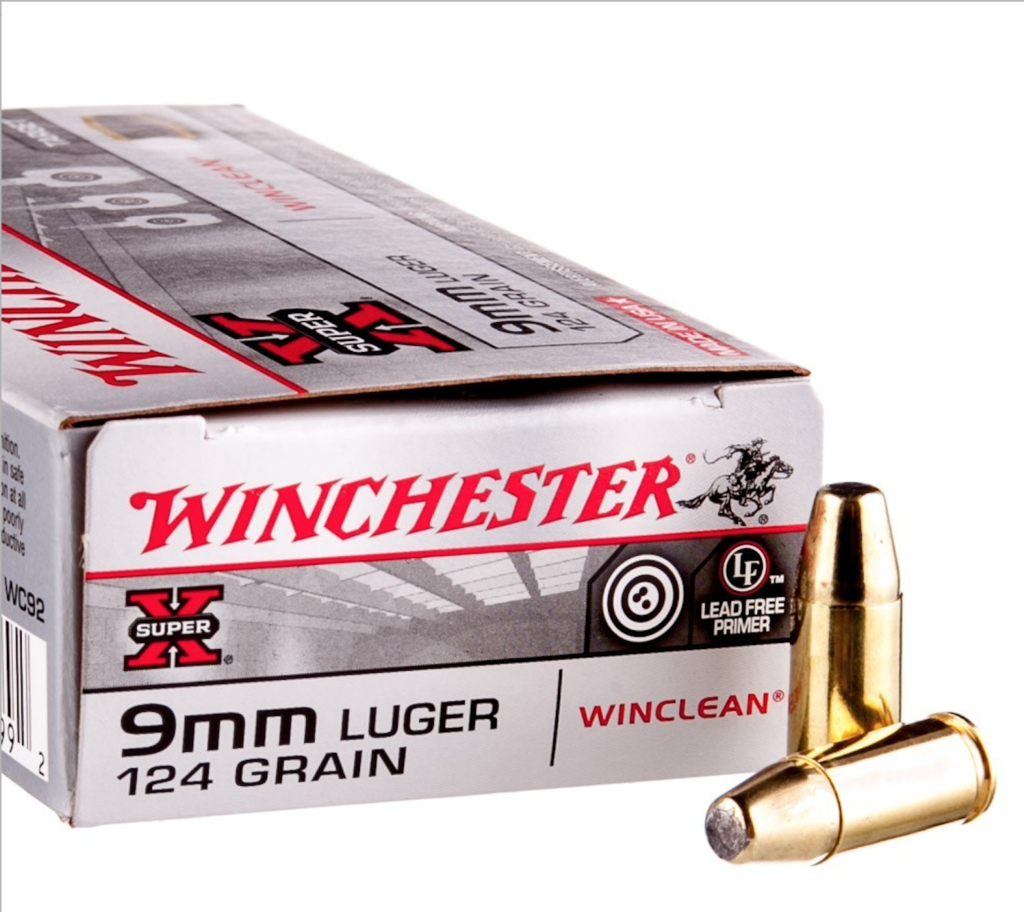

It is not uncommon for cheap factory loaded ammunition to be dirty and dull in appearance, and there is no exception with the Winchester 9mm White Box ammunition. The brass, much like many other factory loaded targets ammunition’s in this price point and usage model, was dull and dirty, containing mild amounts of machining grease and what appeared to be graphite or other powder/soft dusty material covering the outside of the case including the primers. The first thing I noticed about the brass upon removing it from its factory packaging, is its overall appearance and cleanliness. All numbers noted below are taken from the 5 yard / 15 foot line. In this case, Winchester has supplied us with a little data to work off of, noting 5 yard Velocities of 1190 fps and energies of 353 ft-lbs out of the barrel. I used this data to position myself at the correct distance of 15 feet form the Chronograph for testing and marked my position so that I could return to it after each reloading for each test group. To the left I have included the label from the Winchester 9mm White Box Ammunition Factory Packaging. Many manufacturers printed data on the box, some do not. I have recorded the outcome of these measurements below as well as photographs of each cartridge and its components throughout the disassembling process. The individual 9mm cartridges are then disassembled, and set aside to be measured and weighed. The 5 samples from the 9mm Winchester White Box ammunition were first weighed and measured in their factory loaded state to record overall variances. More details about my process and the equipment used for testing the Winchester 9mm White Box Ammo are at the bottom of this page. To test the Winchester White Box 9mm ammo I first select 5 samples from the 50 round box, disassemble the components and take measurements in terms of both physical sizes as well as weight in grains. In the case of the Winchester 9mm White Box Target ammo, i found this to be particularly true. For the most part, this generally seems to be true. The general consensus is that factory line assemblies do not produce the same quality or employ the same close tolerances as ammunition that is loaded by hand. Many of the large ammunition manufacturers produce their low end target ammo using automated machines, causing debate over exactly what the tolerances really hold up to and how much variance there is from one cartridge to the next. There has been much discussion in the past regarding factory loaded ammunition and quality control issues. Winchester White Box 115 grain 9mm Cartridges The Winchester White Box 9mm ammo falls into the lower end of that spectrum and serves as a mostly economical solution for those that would like to practice their handgun skills more frequently on a budget, but would still like the reassurance of a brand name American company manufacturing their ammunition. In their lineup of products, Winchester offers products from the expensive and well made down to the cheap and highly economical. Winchester is an old American company and with that comes lots of history, a wide selection of firearms spanning centuries, and a good selection of ammunition, reloading components, and firearms accessories.

The 115 grain variation of this 9mm ammunition, which is what we are testing in this article, can be found at most retailers where firearms are sold and can be had anywhere from $10-22 USD depending on where it is purchased. The Winchester Target 9mm Ammo, also known as Winchester White Box 9mm ammo, is a popular and fairly economical choice for target practice in 9mm Parabellum. It would seem that the tougher lead in the Remington JHP allows it to resist excessive expansion and therefore offer greater penetration because of this.Īlaska-Based Youtube Vlogger, Retired Marine, Firearm and Gear Tester.About the Winchester White Box 9mm Ammunition Typically, 115 grain bullets are going so incredibly fast that they tear themselves apart or expand so much that it prevents them from penetrating deep enough. When it comes to choosing a bullet weight for a firearm, we typically like to get a bullet that has an appropriate velocity that will give us that fine medium between penetration and reliable expansion. This is good for this bullet for one good reason. I think we can also agree that it is very likely that the Remington JHP probably has harder lead than the Winchester JHP.
#WINCHESTER 9MM AMMO REVIEW YOUTUBE FULL#
But, also I think that we can all agree that the Remington seems to be very well suited for full sized pistols and longer barrels. So, what can we take away from this test? Well, I would say that we could very easily draw the conclusion that the Winchester JHP is a more reliable generic hollow point option for smaller barrels.


 0 kommentar(er)
0 kommentar(er)
